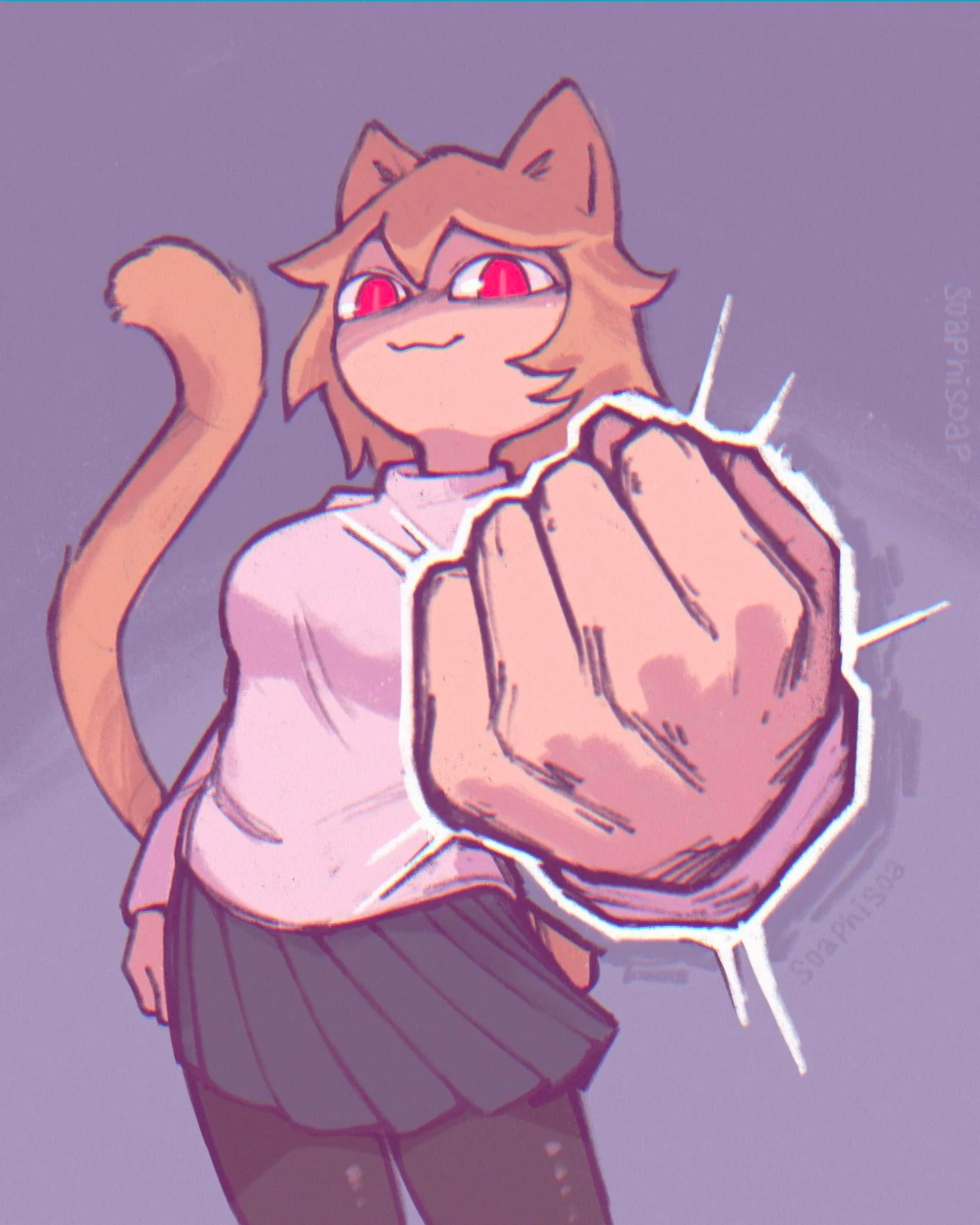Virgin Knight Who Is the Frontier Lord in the Gender Switched World - Chapter 187
- Home
- All
- Virgin Knight Who Is the Frontier Lord in the Gender Switched World
- Chapter 187 - The Grievances of the Elector of Mainz
“This isn’t going to work.”
I muttered those words as if the situation were someone else’s problem.
I don’t have the luxury of viewing the battlefield from a bird’s eye view, but there’s no need to spread out a map and move pieces around like a staff officer either.
The cavalry led by Berlichingen has repeatedly broken through our lines.
Reports from the crystal ball inform me that the cavalry cannons have been smashed to pieces, the cavalry sent to fill the gaps has been mercilessly slaughtered, and our formation is in complete disarray.
I can hear shouts that the commander has been killed.
I even saw some of the soldiers fleeing.
There’s no need to scrutinize the accuracy of this information.
If it’s true, we can’t win; if it’s false, the field is already in utter chaos.
The morale on the right wing has collapsed, command is in shambles, and panic is spreading.
Even the most inexperienced person could see it.
It’s over.
It’s clear to anyone that defeat is inevitable.
And this is the state of things less than an hour after the battle began.
To raise our morale, we tried to blunt their charge with cavalry cannons, but nothing worked.
“Your Eminence, Cardinal of Mainz, speaking as if it’s someone else’s problem won’t change the situation.”
“I know. Well, calm down.”
My adjutant was yelling beside me, but it’s too late to do anything now.
I began to analyze where things went wrong.
I know.
It was a mistake to be swayed by Pope Yulia.
If I have any fault, it started from there.
Though my honor is directly tied to the dignity of my territory, it was a poor decision to blindly follow the Pope’s orders.
I should have ignored the Pope’s sweet words and not let my anger toward Berlichingen cloud my judgment.
If it were truly a sweet deal that guaranteed victory, the violent Pope would have gone to the battlefield himself. I should have seen through that.
But instead, Pope Yulia sent someone else to the battlefield, likely suspecting foul play.
That someone was the foolish me, one of the three prince-electors, and now here we are.
Not only am I being forced to swallow my pride, but I’m also being made to lick the dirt after being smashed into the ground.
I’m not surprised by the loss; I’m simply accepting the reality of it.
“The die has already been cast. We may never know what kind of foul play was in their dice.”
Even if I die, this Cardinal of Mainz won’t be going to heaven.
If that’s the case, I won’t be able to look down from heaven and figure out the cause.
Now, is it true that there really are superhuman devils like Reckenber, whom I believed to be mere propaganda until now?
And somehow, that Valiere army, despite being led by a spare daughter of the Anhalt family, managed to secretly include such a force.
Unless there’s such a severe trick, I can’t think of any other reason for my loss.
I still find it hard to believe.
“What about the left wing? Any good news there?”
The right wing is already in tatters. There’s not a shred of hope left.
But if we can push through from the left, where there are no cavalry, we might be able to reach Valiere’s neck.
If we take out their leader, the morale of that army will surely crumble.
I know their army’s morale is not upheld by the state or anything else but by Valiere von Anhalt herself.
That much is clear.
“They’re holding firm. Their ranks are about a third of ours.”
“Is Valiere there?”
“Yes, she’s been spotted commanding from the rear of the formation.”
Ah, this is no good.
If the leader weren’t there, we might still have a chance.
We could have raised morale by breaking through from the left and gradually crushed them.
“Even though their line is thin, our attempts to flank or break through with repeated charges have failed.”
“It’s no use. The line may be thin, but their gunfire is too intense.”
Their troops and equipment were assessed by the herald we sent during the initial negotiations.
I’ve heard that Valiere’s personal guard may wear second-hand gambesons, but every soldier is armed with a musket.
“A small force charging across this plain can’t hope to survive the gunfire from 100 musketeers.”
Conversely, if we had numbers, it might be a different story.
Their morale is at its peak, and they know their leader is right behind them.
They’re fighting as if they’re part of the personal guard, with a resolve and honor equal to their own.
Even those mercenaries, who would typically be trash, are now fighting desperately to protect their lord, more determined than any regular soldiers.
The left wing’s formation is unbreakable.
It’s more likely that Berlichingen’s cavalry will kill me first.
The center is also a lost cause; even the clergy from the Cologne faction are counter-attacking and wreaking havoc.
It’s so bad that their morale seems to rise with each casualty they suffer.
This is checkmate.
“Shall we surrender?”
“I’m considering how best to lose.”
Some might say I’m quick to give up, but if we can’t win, how we lose is crucial.
As death draws near, I’ve found a strange sense of calm.
I’ve even lost my anger toward Berlichingen, now solely focused on minimizing my army’s losses.
In the end, a commander who knows he’s lost should at least ensure as many soldiers as possible make it home safely.
As the lord of the Electorate of Mainz, these soldiers’ lives are as valuable as my own wealth.
Now, let’s think.
How should I lose?
“Adjutant, do you think the surrender of this Cardinal of Mainz will be accepted?”
“Well, it’s difficult to say.”
In war, the goal should always be to seek a truce.
Once the conditions for victory are met, continuing the conflict only consumes resources and is utterly meaningless.
This is a basic principle that every soldier and officer should understand.
Even Valiere, who has been educated as a member of the Elector family, should grasp this concept.
She’s not aiming for our annihilation, nor is she vying for control of our territory.
She’s simply fighting desperately to protect herself and her subordinates.
Normally, if we offered to surrender, that would be the end of it.
But…
“I am an inquisitor and a cardinal who denounced Valiere and her followers as heretics, condemning them to die as apostates.”
Given that the cause of this conflict isn’t ordinary, I doubt Valiere will back down here.
I curse my own careless words.
I didn’t seriously mean any of it; it was just a war of words.
But every soldier in Valiere’s army likely believes that they must crucify this Cardinal of Mainz.
They’re convinced that this war will continue until one of our leaders is dead.
As I gnash my teeth, I reflect on how poorly everything leading up to this battle has gone.
Honestly, I couldn’t care less about orthodoxy or heresy.
To me, faith is just something that either brings in money or doesn’t.
Or perhaps a tool to control morality, honor, and the hearts of people.
As a cardinal, it’s probably inappropriate for me to voice such thoughts, but at this point, it hardly matters.
History will remember me as an incompetent fool, and I’ll die.
“I don’t mind offering up my head as the price. That much is fine.”
I don’t want to die, but as an elector, I’ve lived with the understanding that if things go south, I may have to face death.
However, even if I surrender my life, that likely won’t be enough.
Even in the best-case scenario, this isn’t a situation where my death alone would resolve things.
They’ll certainly demand my head, but they’ll likely demand more, and they won’t be gentle about it.
“So, my dear adjutant, I need you to guide me. It’s fine to surrender, but how should we negotiate? What terms should we offer?”
“Unfortunately, the herald we used for negotiations returned before the battle began. Ideally, we should have arranged for a feudal lord or a cleric to act as a mediator in advance. However, as Your Eminence is both an elector and a cardinal, and Valiere is the daughter of an elector, the only ones who could mediate are Pope Yulia or Emperor Maxine.”
It’s no surprise, but there’s no one to negotiate on our behalf.
The outcome is clear, and there’s no authority who will step in to declare the battle over at this point.
Neither that violent Pope nor the apathetic Emperor cares whether I live or die.
Even if the Anhalt Elector family complains about me being tasked with an inquisition, they’ll just brush it off with a comment like, “The Cardinal of Mainz acted on his own.”
They’ll dismiss it with such an absurd excuse.
In peacetime, this wouldn’t happen.
Even the Emperor and the Pope don’t hold absolute power.
But after losing so many soldiers on this battlefield and suffering the disgrace of defeat, the Electorate of Mainz will have no strength to argue.
On the contrary, I must focus all efforts on defending our territory to avoid being further exploited.
The struggle of all against all truly brings misery to the defeated.
I’ve always wondered, why do people go to such lengths to take each other’s possessions?
Why do they so easily take each other’s lives?
I proposed the “Mainz Land Peace Decree” to the Imperial Diet, hoping to prevent acts as cruel as those Berlichingen committed against me, but it will likely be forgotten as the ramblings of a defeated man.
If the ones making the rules are weak, no one will follow them.
“Why do people fight?” I can’t help but wonder.
“Your Eminence, please stay strong.”
If I had won, I would have killed that little girl Valiere, slaughtered every Cologne cleric, and massacred the merchants to steal all their wealth.
I would have tortured Berlichingen to the point where even suicide wouldn’t be an option.
So, it’s only fair that I should be killed.
Even the soldiers I brought with me only thought about killing the weak to take their money and live in luxury.
It’s only natural that they should be killed.
Everything is as it should be.
But we’re all lacking something, and without taking it from someone else, no one can live happily.
We have to persecute the weak to gain some profit.
“I wish I hadn’t been born in such a time.”
It’s the only time I ever thought that.
When my daughter was born, I realized just how dark this world is.
This child was surely born in the wrong era.
I wished from the bottom of my heart that she could have been born in a brighter time.
I couldn’t help but realize it.
The reason I’ve never told my daughter that I’m her mother, even now, is to protect her from all the ugliness that comes with being an elector’s family member.
But, as a parent, was that really the right decision? I no longer know.
“The complaining is over. Well, we have no mediator, and even if we did, there’s no time to call for one. If we don’t do something, our formation will collapse, and we’ll be massacred. Even if we surrender, that might not change.”
“What do you intend to do?”
“Order a full retreat. Spread the word that no punishment will be given to those who flee. Do whatever it takes to get as many men back to the territory as possible. If they believe they can retreat, some semblance of order will be maintained. I’m leaving you in charge of that. I’ll take the rear and lead the cavalry to buy us some time.”
If charging alone and dying quickly would end this, I’d do it.
But doing that would only cause more confusion among our troops and worsen the post-defeat conditions.
I will die.
But I must consider what comes after.
For my daughter, who will inherit the Electorate of Mainz, I must minimize any potential disadvantages.
“I’ve drawn a terrible lot.”
And now, the complaints are truly over.
At least, I made the right decision to send my daughter, the heir, away first. It was good for both the territory and myself.
That’s the only commendable thing the Cardinal of Mainz has done in this war.
All that’s left is to die.


































random image